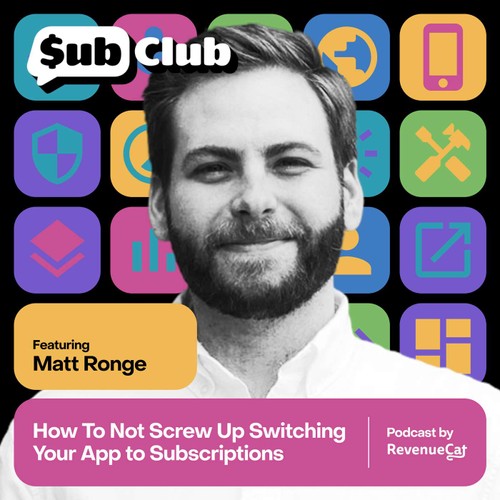
 Sub Club by RevenueCat
Sub Club by RevenueCat How To Not Screw Up Switching Your App to Subscriptions — Matt Ronge, Astropad
4 snips
Jan 5, 2022 Chapters
Transcript
Episode notes
1 2 3 4 5 6 7 8 9 10 11 12 13 14 15 16 17 18 19 20
Introduction
00:00 • 2min
How to Be a Successful Engineer in the Aviation Space
01:56 • 2min
The Challenges of Building an iOS App for a Pilot
03:31 • 5min
The Importance of Paid Apps for Professional Work
08:24 • 2min
How to Make Your App Store Work for You
09:59 • 3min
The Transition to Subscriptions
13:08 • 3min
The Benefits of Maintaining Two Binaries
15:43 • 2min
How to Avoid the Negative Case
17:57 • 2min
The Cost of Software Development
19:43 • 2min
How to Convert Customers to Existing Customers
21:31 • 3min
The Importance of Lifetime Subscriptions
24:10 • 4min
The Future of Subscriptions
27:42 • 2min
The Importance of Cash Flow in LTV Modeling
30:08 • 2min
The Importance of Price Anchoring
32:03 • 2min
Adobe's Creative Cloud Subscription Model
33:45 • 2min
The Importance of Diversifying Your Product
35:30 • 2min
The Pros and Cons of Luna Display
37:28 • 2min
How Apple Purchased a Lot of Your Unit
39:15 • 2min
The Importance of Incentives in a Small Company
41:33 • 2min
The Advantages of Hardware Support for Macs
43:19 • 6min
